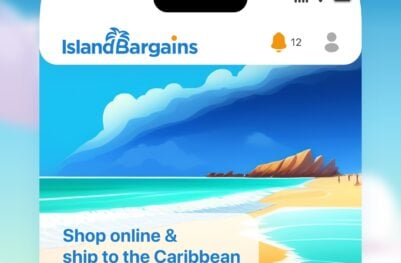- Developers
- Developer Blog
- Mobile App Development
- Geolocation App Development: What You Need to Know About It?

profile
Verified Expert
1 year of experience
Alexey Semeney is an entrepreneur, founder, and CEO of DevTeam.Space. He is a product development expert and an occasional writer on different topics related to team management and product development. He is an avid traveler and sports enthusiast.
Are you interested in geolocation app development? This is a good question, as geolocation is an excellent market with many opportunities to be explored.
In this article
- How Does Geolocation Work?
- What Can Geolocation Do?
- Generating Revenue With Geolocation Tracking Apps
- Increasing Brand Loyalty Through Geolocation
- Integrating Geolocation Into Your Mobile App
- Key Considerations for Developing a Geolocation App Successfully
- Frequently Asked Questions on Geolocation App Development
Forget regular boring status updates. The world no longer cares about what you’re doing; they care about where you’re doing it.
Geolocation is the beating (and revenue-generating) heart of some of the world’s most successful mobile apps — so why not bring your app into the big leagues?
If you’re looking to make your business app the most successful it can be, develop a mobile app with geolocation.
Geolocation mobile apps not only help users feel connected (and therefore also feel a connection to your business), but it allows you to gather tons of useful data about your customers and pull new customers in when they least expect it.
Here‘s everything you need to know.
How Does Geolocation Work?
All smartphones have a GPS chip inside of them. You may have utilized this chip to check the traffic on Apple Maps or tag your Facebook status during an awesome beach vacation, but it’s not only fun and games.
Geolocation can be a major asset to your business and a powerhouse, revenue-generating tool.

Geolocation does two major things that can help your business:
- Allow customers to report their location to other customers;
- Associate real-world locations (think: nearby restaurants or shops) with a customer’s real-life location.
Location-based mobile apps give users a richer experience than something they could get on their computer (which is really important because the average consumer uses their smartphone as a lifeline and only occasionally logs into their home computer).
Keep reading to find out some of the major benefits.

Get a complimentary discovery call and a free ballpark estimate for your project
Trusted by 100x of startups and companies like
What Can Geolocation Do?
Before you even think of generating revenue with location-based app development for your startup, you have to know all the data geolocation can collect. This will help you create user-friendly features that boost your ROI.
Here are some key things geolocation can do:
- Identify a user’s current position;
- Detect users moving from one region to another;
- Calculate the distance between objects.
There are a number of money-making features geolocation can provide. Each way is innovative and user-friendly. It doesn’t feel like a popup ad but rather something of value your customer appreciates receiving.
Generating Revenue With Geolocation Tracking Apps
Creating a geolocation application is an amazing way to increase the ROI on your already existing (or brand-new, currently-in-the-planning-stages) mobile app.
Seriously, a whopping 92 percent of 18 to 34-year-olds own smartphones, and out of all cellphone owners, those who own smartphones tend to be highly educated and have higher incomes.
There are a few ways you can make some extra cash by building an app with geolocation features:
- Targeted, location-based ads;
- Location-based loyalty programs for app users;
- Promotions for users who share their location.
I’ll show you how to get started with the geolocation app development process below, but before you begin, it’s important to pick out which features you’re going to utilize. I’d recommend targeted ads as a must.
A whopping 72 percent of customers surveyed said they’d respond to notifications they receive from a brand when they’re near one of its locations.
Sending location-based notifications (and adding a loyalty program for when your customers actually stop in) is a huge way to take people off the streets and put them right into your store.
Taco Bell did a really great promotion with location-based notifications — the one your business could model a campaign after if you create a location-based app.
The fast-food chain held a daily happy hour at 2 p.m., where drinks and food would be discounted. They included a “remind me at 2 p.m.” option for users and then reminded all those customers to come into their nearest store as soon as the clock hit 2.
This is super effective because the restaurant was marketing to people who were already near their locations, and it was just what they needed to sway their decision to come in.
Increasing Brand Loyalty Through Geolocation
It’s no secret that a location-based feature can increase revenue and help you retain customers. Take Claritin, for example.
Claritin has strong brand loyalty in the marketplace for over-the-counter allergy relief. This is in part because of the useful features they offer their users.
Claritin sends location-based allergy updates (pollen counts and other allergy information) directly to consumers who’ve signed up for their email list.
Hire expert mobile developers for your next project
1,200 top developers
us since 2016
If a customer sees that the day is supposed to have a high pollen count, they may go out and buy Claratin before their allergies even start bothering them (in other words, they’ll use Claratin’s product before they even actually need it. If that’s not good marketing, I’m not sure what is!).
Features like this help customers rely on your business and keep coming back for more.
Integrating Geolocation Into Your Mobile App
If you’re looking to make a location-based app, you’re going to need to find a developer who specializes in it. They’ll work with your API to add location-based features, and they’re probably going to choose to implement it in one of two ways:
- Users ask the application to find geolocation data (such as nearby restaurants and shops) where they are currently positioned (think: the “current location” option in Apple Maps).
- Users manually enter a specific location and ask your app to find geolocation data without noting their specific GPS location.
Both of these options use Geolocation, but only one will use your customer’s specific GPS information. It’s the difference between coding for two APIs and one. Again, this is something your developer will automatically do, but it’s always good to have some background knowledge.
I’d recommend using both options — you want customers to be able to search for specific locations in areas they aren‘t currently located, as well as get info about where they are present.
Think about how annoying it would be if you were trying to Yelp some restaurants in a city you planned to visit, but it wouldn’t allow you to type in a location. No thanks!
Key Considerations for Developing a Geolocation App Successfully
Keep the following key considerations in mind when developing a geolocation app:
1. Choose between hybrid app development and developing a native Android or iOS app
You can develop mobile apps for Android and iOS. Alternatively, you can develop hybrid apps. Native apps can make the best use of the hardware features of the mobile device.
You develop native mobile applications using languages like Java or Swift. They offer the best user experience, performance, and security.
On the other hand, hybrid apps can run on both Android and iOS with just one codebase. This reduces development and maintenance costs.
React Native, a mobile framework based on JavaScript, can deliver a near-native user experience. You need to weigh between user experience and costs.
2. Choose external APIs relevant to the functionality of your app, e.g., dating apps, e-Commerce, etc.
We recommend you build RESTful APIs to leverage your business capabilities. However, you might want to use market-leading 3rd-party APIs in some cases. You should create your own APIs to implement the core functionality.
On the other hand, implementing non-core functionalities like social networking integration or push notifications becomes easier with 3rd-party APIs and SDKs.
Using 3rd-party APIs increases external dependencies. Therefore, it boils down to a fine balance. Analyze factors like pricing, security, real-time availability of data, etc., when evaluating 3rd-party APIs.
You might need to weigh between various 3rd-party API solutions too. E.g., you might need to choose between Waze vs. Google Maps when building an app like Uber.
Google Maps offers directions for walking, driving, bikes, and public transportation. On the other hand, Waze offers directions for cars.
3. Manage geolocation-related data like Cell ID effectively
Depending on the nature of your app, you might collect various kinds of geolocation-related data. You might use different technology solutions for this. Furthermore, you might process them for different purposes.
Hire expert mobile developers for your next project
You need to design and implement a suitable technical solution to manage this location data effectively. This could involve the following:
- Securely managing global positioning system coordinates-related data obtained from GPS technology solutions;
- Integrating Google Maps APIs and SDKs;
- Integrating OpenCellid, a popular open-source database of cell towers;
- Implementing appropriate security solutions to prevent a breach of user’s location data;
- Utilizing tools like the Geolocation API from Google to get a location and accuracy radius based on information about cell towers and Wi-Fi nodes;
- Using appropriate tools to collect geolocation data from Bluetooth.
4. Weighing different location-aware technologies like geofencing, beacons, etc.
You can choose from various geolocation technology solutions for location tracking. The following are a few examples:
- Beacons: Beacons can help with indoor navigation, positioning, and tracking. These are small radio transmitters that send Bluetooth signals. In this context, iBeacon, a protocol developed by Apple deserves a mention. An iPhone that supports sharing data using Bluetooth low energy can be turned into an iBeacon. You can create an app that’s compatible with iBeacon.
- Geofencing: Geofencing utilizes GPS coordinates to encapsulate a geographic area. This technology uses location data via GPS to find the proximity of the user to that area.
- Yahoo PlaceFinder: This is a geocoding web service from Yahoo. This helps programmers make location-aware apps.
5. Reviewing apps that have successfully integrated geolocation services
We recommend you review well-known geolocation apps that have successfully integrated geolocation functionality to deliver a location-based service. This will provide you with useful ideas.
The following examples are noteworthy:
- TripAdvisor: TripAdvisor uses geolocation services to allow travelers to find nearby places of interest.
- Facebook: The check-in feature offered by Facebook uses location-tracking technologies.
- Airbnb: Airbnb uses Foursquare, a popular location platform to provide useful services to its customers.
- Pokémon Go: This popular mobile game uses GPS technologies to allow players to capture a Pokémon in real-life locations.
Planning to Build a Location-Based Application?
Adding a geolocation feature to your app is a no-brainer. It’s an easy way to generate business in the location-based services market.
Geolocation app functionality helps your customers feel a real, emotional connection with your app (you’ll be reaching them in their homes, when they’re driving around running errands, when they’re out having fun, etc.).
However, you will need experienced software developers to accomplish this effectively.
If you, as a business CTO, do not find the required technical skills in your development team, we would advise you to partner with a reputed software development company.
DevTeam.Space can also help you here with its field-expert software developers community. Write to us your initial product specifications, and one of our account managers will get back to you for further assistance.
Further Reading
Here are a few articles that might also interest you:
Are you looking for some excellent requirements document examples? When it comes to developing a functional requirements document, the key is to clearly and comprehensively communicate project requirements and...
Continue readingWondering about website rebuild vs. redesign? You've come to the right place. According to this HubSpot study, "the top 4 websites in the world attract nearly 33% of the traffic." These are Google, YouTube, Facebook, and Baidu. Most...
Continue readingWondering how real estate technology will change to meet up-and-coming generations? This is a very interesting question. According to the National Association of Realtors, during the past several years, dissatisfaction with the...
Continue readingWant to know how to build a game like Pokémon Go? Or maybe you have an idea of a similar mobile game? Keep reading to learn all the details about creating Pokémon-like games from our comprehensive guide. In this article Create a...
Continue readingFrequently Asked Questions on Geolocation App Development

Geolocation is the ability of an app to localize itself to the region that it is in. One example is Tinder, which localizes its matches on user devices with people nearby.
There are huge advantages to using location-based precise and prompt services to improve your app. To start with, the customer is getting choices that they can act on, i.e., local restaurants, hotels, etc., using such apps. Secondly, geolocation allows app owners to sell better advertisements and products to users.
If you don’t have experience developing location-based apps, you should be cautious while adding this kind of feature. You might be lucky enough to find an existing plug-in that will allow you to add location features. However, the best route is to hire developers for location-based mobile app development from scratch using outdoor and indoor geolocation technologies.

Alexey Semeney
Founder of DevTeam.Space
Hire Alexey and His Team To Build a Great Product
Alexey is the founder of DevTeam.Space. He is award nominee among TOP 26 mentors of FI's 'Global Startup Mentor Awards'.
Alexey is Expert Startup Review Panel member and advices the oldest angel investment group in Silicon Valley on products investment deals.






